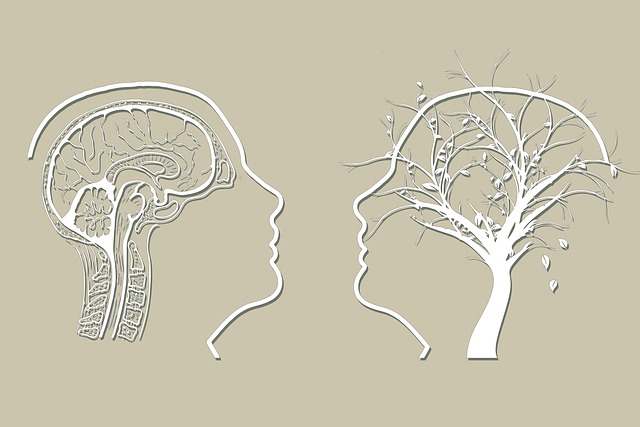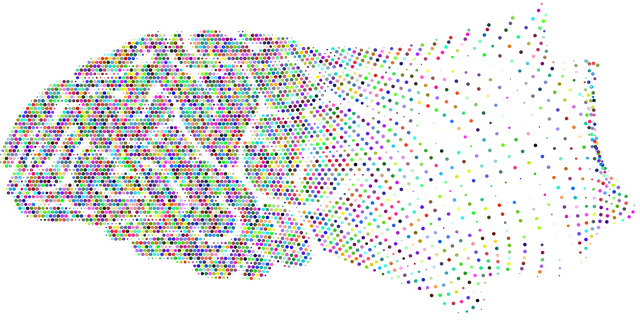Substance abuse among young adults is driven by mental illness, trauma, and environmental factors. Specialized therapy for young adults with panic disorder and anxiety attacks, such as CBT and mindfulness-based therapies, is crucial in addressing root causes. By reducing stigma through policy advocacy and providing access to comprehensive treatment options like Stress Management Workshops and Trauma Support Services, we can empower individuals to overcome substance abuse and foster healthier communities. Adopting healthy lifestyle habits, engaging in stress management techniques, and building supportive networks are also essential components of risk management for this demographic. Community-based programs targeting at-risk youth through educational workshops and peer support promote emotional healing and discourage the use of substances.
Substance abuse poses significant risks, especially among young adults grappling with panic disorder and anxiety. This article delves into comprehensive risk reduction strategies tailored for this vulnerable demographic. We explore evidence-based therapy approaches, such as cognitive behavioral therapy (CBT), designed to address underlying mental health issues. Additionally, we discuss lifestyle changes, the power of support networks, and community-based programs that foster a healthier environment. By implementing these strategies, young adults can effectively manage anxiety and reduce the allure of substance abuse.
- Understanding Substance Abuse and Its Risks
- Therapy Approaches for Young Adults with Panic Disorder and Anxiety
- Lifestyle Changes and Support Network for Risk Reduction
- Community-Based Programs and Preventive Measures
Understanding Substance Abuse and Its Risks

Substance abuse is a complex issue that stems from various underlying factors, including mental illness, trauma, and environmental influences. Understanding these root causes is crucial for implementing effective risk reduction strategies. Many young adults struggle with substance abuse as a way to cope with underlying panic disorders or anxiety attacks, highlighting the need for specialized therapy options tailored to their needs.
The risks associated with substance abuse are multifaceted, impacting both individual health and societal well-being. Mental illness stigma reduction efforts play a vital role in encouraging individuals to seek help without fear of judgment. By fostering inner strength development through therapy, support groups, and community initiatives, we can empower young adults to overcome their struggles. Furthermore, mental health policy analysis and advocacy are essential for ensuring access to comprehensive treatment options, addressing the root causes of substance abuse, and promoting healthier communities.
Therapy Approaches for Young Adults with Panic Disorder and Anxiety

For young adults suffering from panic disorder and anxiety attacks, specialized therapy approaches are crucial to effectively managing these conditions. Cognitive Behavioral Therapy (CBT) has proven highly successful in treating anxiety disorders by helping individuals identify and change unhelpful thought patterns and behaviors contributing to fear and panic. Through CBT, young adults learn coping strategies to manage their symptoms, such as relaxation techniques and exposure therapy, which gradually expose them to feared situations in a safe environment.
In conjunction with CBT, Mindfulness-Based Therapies offer valuable tools for stress management. These therapies teach individuals to focus on the present moment, reducing the impact of anxious thoughts and memories. Additionally, organizations like Stress Management Workshops and Trauma Support Services provide comprehensive programs tailored to young adults’ needs, incorporating group therapy sessions, educational workshops, and practical exercises for improving mental resilience and overall well-being. Such initiatives are integral to any risk management planning for mental health professionals aiming to support this demographic effectively.
Lifestyle Changes and Support Network for Risk Reduction

For young adults struggling with substance abuse, implementing lifestyle changes and building a robust support network can significantly reduce risks. This may involve adopting healthier habits such as regular exercise, balanced nutrition, and adequate sleep, which have been shown to improve mental well-being and decrease vulnerability to addiction. Engaging in stress management techniques like mindfulness meditation, deep breathing exercises, or yoga can also help mitigate anxiety and panic disorders commonly experienced by this demographic.
A crucial component of risk reduction is access to a compassionate support network. This includes connecting with understanding friends and family who can provide emotional backing and accountability. Additionally, seeking professional help through therapy for young adults experiencing panic disorder and anxiety attacks, such as Cognitive Behavioral Therapy (CBT), can be immensely beneficial. Crisis intervention guidance and healthcare provider cultural competency training are also essential elements that contribute to a comprehensive support system, ensuring individuals receive care tailored to their unique needs and backgrounds.
Community-Based Programs and Preventive Measures

Community-based programs play a pivotal role in mitigating substance abuse by addressing its root causes and fostering resilience among young adults. These initiatives often include educational workshops, peer support groups, and awareness campaigns that target at-risk populations. By promoting healthy coping mechanisms and Mind Over Matter principles, such programs empower individuals to navigate stress, anxiety, and panic disorder without resorting to substance misuse. For instance, therapy sessions tailored for young adults experiencing anxiety attacks can teach them emotional healing processes, enabling them to build resilience and make healthier choices.
Additionally, community outreach programs can connect vulnerable youth with essential resources, including mental health services and addiction treatment centers. By integrating these measures into a comprehensive strategy, communities can create a supportive environment that discourages substance abuse while encouraging open dialogues about mental health. This collective effort not only reduces the risk of substance misuse but also fosters overall well-being, ensuring young adults have access to the tools needed for emotional healing and personal growth.
Substance abuse is a complex issue, but with a multi-faceted approach, we can significantly reduce associated risks. By combining therapy options like those tailored for young adults with panic disorder and anxiety attacks, along with lifestyle changes and robust community support, individuals are empowered to make healthier choices. Community-based programs play a vital role in preventive measures, fostering environments that discourage substance abuse and promote well-being. Together, these strategies create a supportive network, offering lasting solutions for risk reduction and improved public health.











